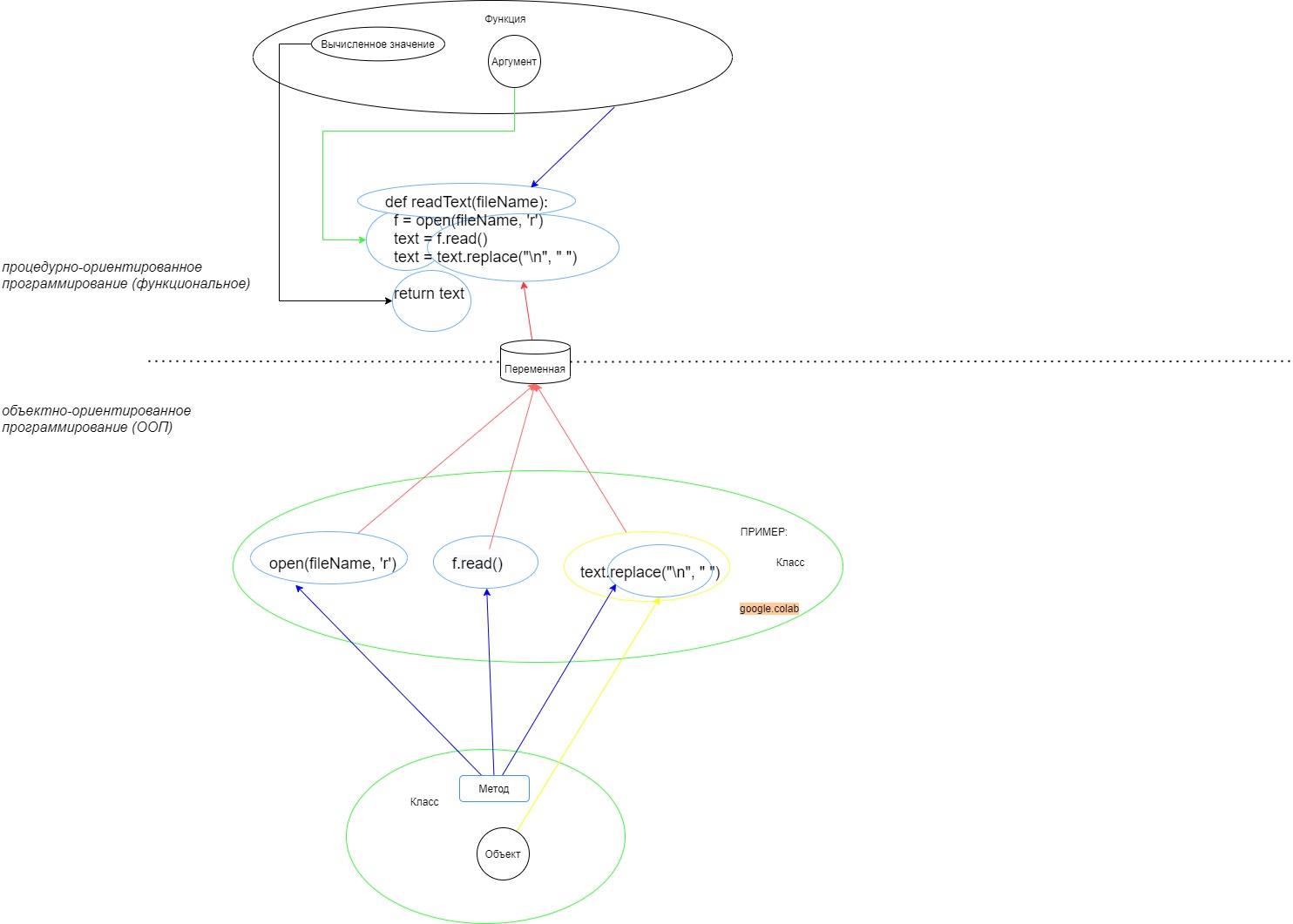I have always been grateful for programming tutorials like THIS :
In my opinion, this is a good educational material and everything is perfectly explained about Object-Oriented Programming there. All concepts, definitions are given, in general - take and use!
But as is often the case with beginners, I really only had an illusion of clarity. When faced with learning Python in practice, you realize how complicated everything is. And at first, this type of code can even inspire horror, well, or there, a feeling of powerlessness, the thought "I'm impenetrably dumb", etc. - each has its own way:
def createSetsMultiClasses(wordIndexes,xLen, step):
nClasses = len(wordIndexes)
xTest10Classes01 = []
xTest10Classes = []
for wI in wordIndexes:
sample = (getSetFromIndexes(wI, xLen, step))
xTest10Classes.append(np.array(sample))
xTest10Classes01.append(tokenizer.sequences_to_matrix(sample))
xTest10Classes01 = np.array(xTest10Classes01)
return xTest10Classes01, xTest10ClassesAnd it's good if you have years to study and you are a first year student.
And if not? And when do you need to immediately study neural networks in Python without deep Python experience? That is, in fact, when there is no programming base and there is no time for buildup either, and there are many good teachers, but they all say different things.
Worse, teachers don't always understand how to explain basic things. It's simple and natural for them. And the student cannot always formulate what he does not understand and how he does not understand.
- - .
2 , . , . , Python - , .

, , , . , - - ().

Here is what I think is "brain-breaking" thing: how the object-oriented model works in conjunction with functional programming. And how objects in Python can be used as elements of functions.
Good luck to everyone in your studies and understanding of reality!